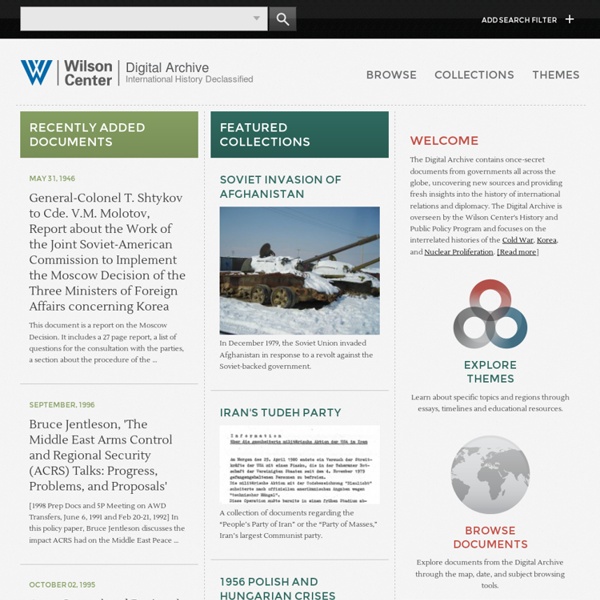



FBI The FBI’s Reading Room contains many files of public interest and historical value. In compliance with the National Archives and Records Administration (NARA) requirements, some of these records are no longer in the physical possession of the FBI, eliminating the FBI’s capability to re-review and/or re-process this material. Please note, that the information found in these files may no longer reflect the current beliefs, positions, opinions, or policies currently held by the FBI. The image quality contained within this site is subject to the condition of the original documents and original scanning efforts. Some material contained in this site may contain actions, words, or images of a graphic nature that may be offensive and/or emotionally disturbing.
EuroDocs Internet Anagram Server / I, Rearrangement Servant : anagram, anagrams, nag a ram, software, anagramme, anagrama, wordplay, word play, anagram creator, anagram solver, anagram finder, anagram generator, anagram maker, anagram unscrambler, anagram machine, In News:The New York TimesSydney Morning HeraldThe Globe and MailJerusalem Post Did you know that parliament is an anagram of partial men? Or, Clint Eastwood an anagram of Old West Action? Someone once said, "All the life's wisdom can be found in anagrams. Anagrams never lie." Here is your chance to discover the wisdom of anagrams. The National Security Archive December 9, 2014 Torture Report Finally Released Senate Intelligence Committee Summary of CIA's Detention and Interrogation Program Concludes CIA Misled Itself, Congress, the President about Lack of Effectiveness. September 28, 2014 THE YELLOW BOOK Secret Salvadoran military document from the civil war era catalogued "enemies," many killed or disappeared. More recent items The National Security Archive is an independent non-governmental research institute and library located at The George Washington University in Washington, D.C. National Security Archive, Suite 701, Gelman Library, The George Washington University, 2130 H Street, NW, Washington, D.C., 20037, Phone: 202/994-7000, Fax: 202/994-7005, nsarchiv@gwu.edu
Gapminder: Unveiling the beauty of statistics for a fact based world view. WebMath - Solve Your Math Problem DoodleMath helps your child build math skills, confidence, and fluency through a personalized work program that complements school work. Serves elementary students of all ages. Whether you are looking for a 3rd grade math app or math apps for 1st graders, Doodle offers math help for kindergarten through 5th grade.Transforms screen time into a positive learning experience with as little as 20 minutes of use a day thanks to our engaging practice problems and unique math games for kids.Encourages independent learning by setting work at just the right level, enabling your student to work unaided. Breaks down math anxiety by gradually introducing topics in a fun and engaging way, boosting their love of the subject.Provides a range of accessibility options, such as audio-dictation, to help even less confident readers work independently. Start a Free 7-Day Trial today.
UH - Digital History Clustering Engine Carrot2 Search Results Clustering Engine Carrot2 organizes your search results into topics. With an instant overview of what's available, you will quickly find what you're looking for. Choose where to search: Type your query: More options More advanced options Hide advanced options Example queries: data mining | london | clustering About Carrot2: Carrot2 is an Open Source Search Results Clustering Engine.
Contains once-secret documents from governments all across the globe, uncovering new sources and providing fresh insights into the history of international relations and diplomacy. It collects the research of three Wilson Center projects which focus on the interrelated histories of the Cold War, Korea, and Nuclear Proliferation. by nda_librarian May 5